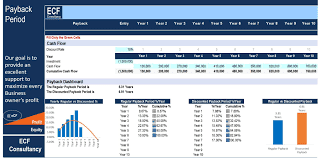Types of Feasibility Analysis Examples
If you are in charge of a certain project for your organization, you need to conduct a feasibility study to evaluate the project's different phases.Feasibility analysis is the process in which plans, designs, and strategies are laid down to evaluate a given project's viability. This article will explain different types of feasibility analysis examples to analyze the feasibility of business strategies.
Why feasibility analysis?
Every new project comes with risks, especially also the financial risk of losing money. Good management practice therefore seeks to minimize the risk by studying all important aspects of a project beforehand and seeking ways to manage and mitigate the risk in order to optimize the economic and operational benefits of a new project beforehand.
What are the types of feasibility analysis?
There are various types of feasibility studies but the most common type includes the following:
Technical Feasibility Analysis
This phase explicitly focuses on the technical resources available to the business. Technical feasibility may include evaluating the proposed project's technical requirements, which may include hardware, software, and other system requirements. This should help the business ascertain whether the technical resources will meet the capacity and if the team is capable of transforming the concepts into a working system.
Market Feasibility Analysis
Market feasibility is the most important analysis in the feasibility study. Without the market, you should not be doing anything more. This study should include a narrative description of the business and industry, competition, market analysis, market potential, and sales projection. A sound marketing plan has to be laid out and should maps out ideas and campaign strategies based on market feasibility analysis.
Operational Feasibility Analysis
This assessment analyzes the inside operations on how the deemed process will be implemented. In this phase, analysis is being done to determine how the plan satisfies a particular requirement by completing the project.
Scheduling Feasibility
After all analysis has been done, the timeliness of the project will determine its success. The business usually set a timeline on how much time the project will take to complete.
Financial Feasibility Analysis
Financial feasibility concentrates on the economic phase of the study and requires all other feasibility studies done as prerequisite.It measures the pecuniary viability of a proposed investment project by assessing the start-up costs, operational expenses, cash flow, and future performance forecast. The result of this analysis will conclude whether the proposed project is financially feasible.
Conclusion: Complete feasibility study should be conducted to ensure the success of the project.
Above feasibility analysis examples show that any project needs to be studied from various angles and result in a comprehensive feasibility assessment of a new project. Before a project passes approval, all applicable feasibility studies must be conducted in order to determine a project’s feasibility. Normally, the financial feasibility study comes at the end and requires all other feasibility aspects clarified beforehand. The likelihood of success of a project depends heavily on the quality of these feasibility analyses and later the quality of execution.



Comments
Post a Comment